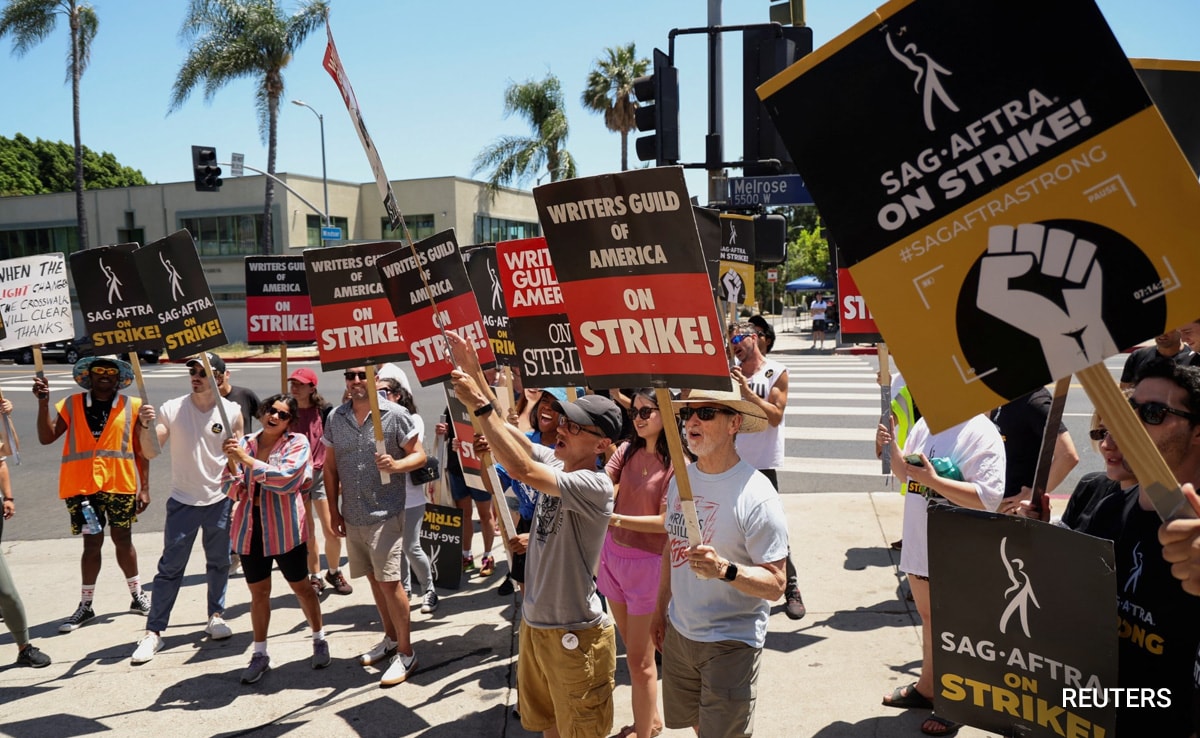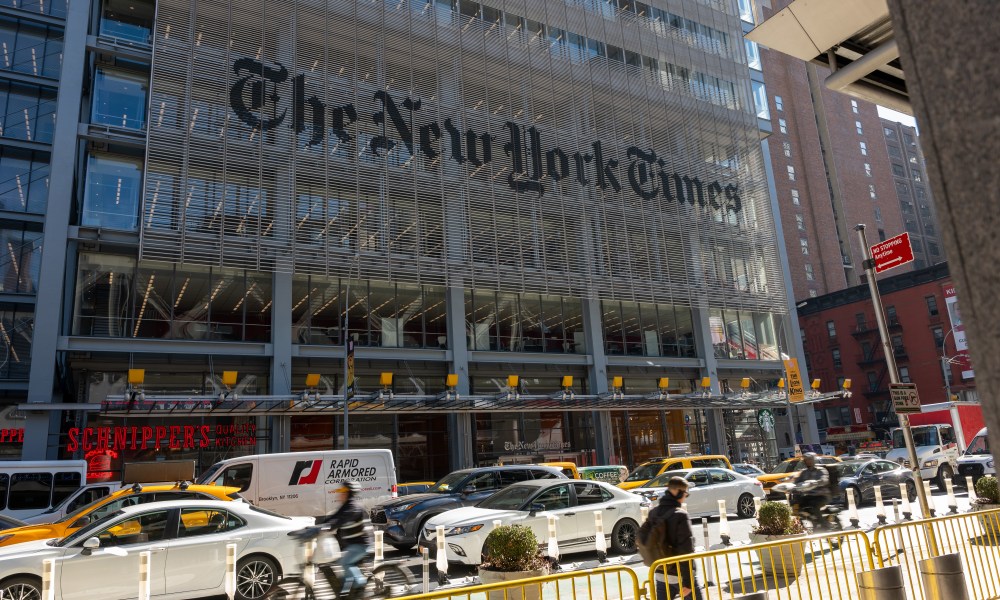Actors And Writers Strike: A Complete Hollywood Shutdown

Table of Contents
The Core Issues Fueling the Actors and Writers Strike
The current Hollywood strike represents a confluence of long-simmering frustrations within the Writers Guild of America (WGA) and the Screen Actors Guild - American Federation of Television and Radio Artists (SAG-AFTRA). Both unions are fighting for significant changes to address the evolving landscape of the entertainment industry, particularly the impact of streaming services.
Writers Guild of America (WGA) Demands:
The WGA's strike is fueled by concerns about fair compensation in the streaming era, the rise of AI in writing, and the need for improved working conditions. Their key demands include:
-
Fair Compensation in Streaming: The traditional model of residuals – payments to writers for reruns and syndication – has been severely eroded by streaming platforms. The WGA demands a fairer system of revenue sharing that reflects the increased viewership and profitability of streaming content. This includes demanding transparency in streaming viewership data.
-
AI Concerns: The use of artificial intelligence in scriptwriting raises significant concerns about job security and the devaluation of writers' skills. The WGA is pushing for safeguards against the unauthorized use of AI to generate scripts and the exploitation of writers' work to train AI models.
-
Improved Working Conditions: The WGA seeks to improve writers' working conditions by establishing minimum staffing levels for writing rooms and limiting the length of writers' rooms, combating the trend toward shorter, less collaborative writing processes.
-
Specific WGA Proposals: The WGA has proposed detailed changes to minimum staffing levels on television shows, limiting the length of writers' rooms to prevent excessive workloads, and demanding increased transparency in the negotiation and approval of streaming contracts.
Screen Actors Guild - American Federation of Television and Radio Artists (SAG-AFTRA) Demands:
SAG-AFTRA's demands mirror many of the WGA's concerns, focusing on fair wages, protection against AI, and improved benefits. Key issues include:
-
Fair Wages and Residuals: Similar to the WGA, SAG-AFTRA is fighting for fair compensation in the streaming era, highlighting the drastic reduction in residuals for actors working on streaming platforms compared to traditional television. Examples include significantly lower payments for streaming shows compared to network television reruns.
-
AI Protection: SAG-AFTRA is demanding protections against the unauthorized use of actors' likenesses and performances through AI. This includes preventing the use of AI to recreate actors' performances without their consent or compensation.
-
Improved Healthcare and Pension Plans: The union is seeking improvements to healthcare and pension plans to ensure actors have adequate benefits throughout their careers.
-
Addressing Self-Tape Auditions and Exploitation: The prevalence of self-tape auditions, often without compensation for actors' time and expenses, is a major point of contention. The union seeks to establish fair standards for audition practices and prevent the exploitation of actors in the current production model.
-
Streaming Compensation Discrepancies: SAG-AFTRA has presented data showing a significant disparity in actor compensation between traditional television and streaming platforms, with streaming often resulting in drastically lower payments despite higher viewership and profitability.
The Ripple Effect: Economic and Cultural Impacts of the Hollywood Strike
The Actors and Writers Strike has far-reaching consequences, impacting not only the creative industry but also the wider economy and culture.
Economic Fallout:
The strike's economic impact is substantial and multifaceted:
-
Loss of Revenue: Studios and production companies are experiencing significant revenue losses due to the halted production of films and television shows.
-
Job Losses: The strike has resulted in widespread job losses beyond actors and writers, affecting crew members, support staff, and related industries.
-
Impact on Related Industries: Industries reliant on film and television production, such as catering, transportation, and hospitality, are also feeling the economic strain.
-
Local Economic Impacts: Cities and regions heavily reliant on film and television production, such as Los Angeles and New York, are facing significant economic challenges.
Cultural Impact:
The cultural impact of the strike is equally significant:
-
Delays in Releases: Anticipated film and television releases are being delayed, impacting moviegoers and television viewers.
-
Creative Stagnation: The prolonged strike could lead to creative stagnation in the industry, with fewer new projects being developed.
-
Shift in Viewing Habits: Limited content availability could alter viewer habits and consumption patterns, potentially driving audiences toward alternative forms of entertainment.
-
Impact on Awards Season: The strike could significantly impact awards season, with potential delays and changes to the eligibility criteria for awards.
Potential Resolutions and the Future of the Actors and Writers Strike
The outcome of the Actors and Writers Strike remains uncertain, but several factors will shape the potential resolutions and long-term implications.
Negotiation Strategies:
The success of negotiations depends on the willingness of both sides to compromise:
-
Bargaining Positions: The studios and unions have vastly different bargaining positions, making a swift resolution challenging.
-
Potential Compromises: Finding common ground requires both sides to make concessions on key issues.
-
Mediation and External Pressure: Mediators and external pressure from various stakeholders could play a critical role in facilitating a resolution.
Long-Term Implications:
The strike has the potential to significantly reshape the entertainment industry:
-
Industry Restructuring: The strike could lead to lasting changes in the industry landscape, including potentially a reevaluation of the business model for streaming services.
-
AI Regulation: The strike highlights the need for regulations regarding the use of AI in creative industries.
-
Union Power: The strike could lead to greater union power and improved working conditions for actors and writers.
Conclusion:
The actors and writers strike represents a pivotal moment in Hollywood history. The core issues – fair compensation, protection against AI, and improved working conditions – are vital for the future of the industry. Understanding the complexities of this Actors and Writers Strike is crucial for appreciating its broad-ranging effects on the entertainment landscape and its potential to reshape the future of filmmaking and television. The resolution of this strike will undoubtedly have long-lasting implications for the creative industry, demanding further analysis and observation as the situation unfolds. Stay informed and follow the developments of this significant Actors and Writers Strike for the latest updates. Understanding the implications of this Actors and Writers Strike is key to navigating the changing landscape of Hollywood.

Featured Posts
-
 Strands Nyt Crossword Answers Thursday February 20 Game 354
May 10, 2025
Strands Nyt Crossword Answers Thursday February 20 Game 354
May 10, 2025 -
 Steel Production Cuts In China What It Means For Iron Ore Traders
May 10, 2025
Steel Production Cuts In China What It Means For Iron Ore Traders
May 10, 2025 -
 Singer Wynne Evans Reveals Details Of Recent Serious Illness
May 10, 2025
Singer Wynne Evans Reveals Details Of Recent Serious Illness
May 10, 2025 -
 Omada Health Files For Us Ipo A Look At The Andreessen Horowitz Backed Telehealth Company
May 10, 2025
Omada Health Files For Us Ipo A Look At The Andreessen Horowitz Backed Telehealth Company
May 10, 2025 -
 Cite De La Gastronomie Le Cas Epicure Et Le Role De La Ville De Dijon
May 10, 2025
Cite De La Gastronomie Le Cas Epicure Et Le Role De La Ville De Dijon
May 10, 2025
